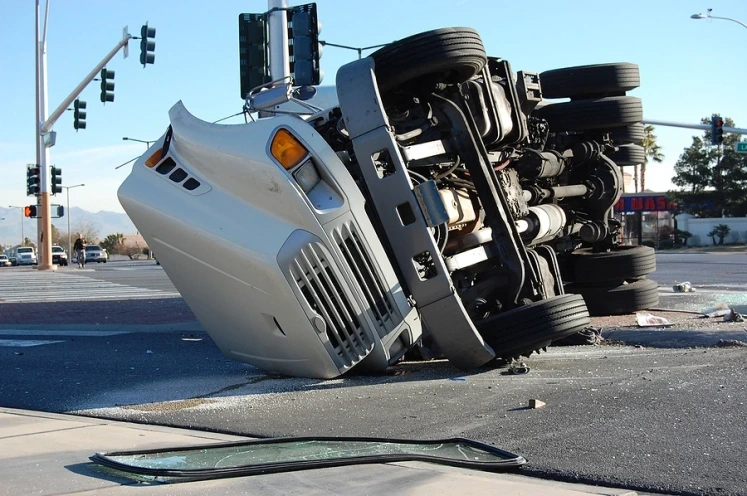Truck Accident Lawyer Ocoee

Accidents involving large commercial trucks can cause devastating injuries and complex insurance claims. If you or a loved one was harmed in a trucking collision, the legal process can be overwhelming without help. At Weston & Pape, our team helps Ocoee residents pursue fair compensation with the support of an experienced truck accident lawyer. Call 561-821-3898 today to set up a free consultation.
How Driver Training Can Help Prevent Truck Accidents
Truck accidents are some of the most serious and often devastating accidents on the road. Due to the size and weight of commercial trucks, collisions involving these vehicles can lead to significant damage, severe injuries, and even fatalities. While there are many factors that contribute to truck accidents, one of the most important ways to reduce the risk of these accidents is through proper driver training.
Why Truck Driver Training Is Important
Truck drivers are responsible for safely operating massive vehicles that weigh several tons. Unlike passenger vehicles, commercial trucks require specialized knowledge and skills to maneuver safely on the road. Because of this, it is crucial for truck drivers to receive the proper training to handle the unique challenges that come with driving such large vehicles.
Proper training equips drivers with the necessary skills to manage their vehicles, avoid hazardous situations, and react appropriately in emergency situations. Without proper training, drivers may make poor decisions, fail to follow safety procedures, or make critical mistakes that can lead to accidents.
Key Areas of Truck Driver Training
To prevent accidents, truck drivers must be trained in several areas, each designed to address a different aspect of truck operation and safety. Below are some key areas of training that can help prevent truck accidents.
Vehicle Handling and Control
Truck drivers must be able to handle and control their vehicles, even under challenging road conditions. Proper training teaches drivers how to safely handle turns, brake properly, and maintain control of their truck in different weather conditions or when faced with obstacles.
Training includes understanding the vehicle’s dimensions, the required stopping distances, and how to safely maneuver in tight spaces or at high speeds. Learning these skills helps drivers avoid situations where accidents are more likely to occur, such as losing control on wet roads or making improper lane changes.
Defensive Driving Techniques
Defensive driving is a critical component of truck driver training. Defensive driving teaches drivers how to anticipate potential hazards and take proactive steps to avoid accidents. For truck drivers, this includes understanding how to maintain a safe following distance, recognizing dangerous driving behaviors in other drivers, and being aware of their surroundings at all times.
In defensive driving courses, truck drivers are taught how to scan the road for hazards, use mirrors effectively, and make decisions that prioritize safety. By practicing these skills, drivers can avoid accidents caused by other drivers, road conditions, or sudden emergencies.
Understanding of Federal and State Regulations
Truck drivers must adhere to a variety of regulations governing their work. These rules help ensure that drivers operate their vehicles safely and avoid accidents. Some of the most important regulations include hours-of-service (HOS) rules, weight limits, and cargo securement guidelines. Training programs teach drivers about these rules and the importance of compliance.
Failure to follow these regulations can result in accidents, such as drowsy driving due to exceeding HOS limits or accidents caused by overloaded trucks that can’t stop properly. A comprehensive understanding of the laws helps drivers avoid these risks and operate their trucks in accordance with safety standards.
Cargo Handling and Securement
Improperly loaded or unsecured cargo can shift during transit, leading to dangerous accidents. Drivers must be trained in how to properly secure cargo to prevent load shifts, which can cause the truck to become unstable and result in a crash. Cargo securement training includes understanding the correct use of tie-downs, tarps, and other securing devices.
Proper cargo handling ensures that drivers are aware of their truck’s weight distribution, preventing dangerous situations where an imbalance can cause the vehicle to overturn or become difficult to control.
Emergency Response and Accident Avoidance
Even with the best training, accidents can still happen. That’s why it’s essential for truck drivers to be trained in emergency response techniques. This training covers how to handle emergency braking, avoid collisions in hazardous situations, and respond to accidents if they occur.
Knowing how to react quickly and correctly in a crisis can make the difference between a minor incident and a catastrophic accident. Emergency response training helps drivers stay calm under pressure and make decisions that can minimize harm.
Vehicle Maintenance and Inspections
Regular vehicle inspections and proper maintenance are essential to preventing accidents caused by mechanical failures. Drivers should be trained to conduct thorough pre-trip inspections to identify potential issues before hitting the road. Training programs often include a focus on vehicle maintenance, tire checks, brake inspections, and other critical systems.
By ensuring their trucks are in good working order, drivers can prevent accidents caused by faulty equipment. A vehicle that’s not properly maintained can fail at the worst possible moment, putting the driver and others on the road at risk.
How Effective Training Prevents Truck Accidents
Truck driver training plays a direct role in reducing the likelihood of accidents. Drivers who receive comprehensive training are better equipped to navigate the challenges of the road and avoid accidents. Here’s how effective training helps prevent accidents:
Reduces Human Error
Many truck accidents are caused by human error, such as driving too fast for conditions, failing to check blind spots, or making improper turns. Training helps reduce these mistakes by teaching drivers how to recognize and avoid dangerous situations.
Increases Awareness and Preparedness
Training makes drivers more aware of their surroundings and prepares them for potential hazards. A well-trained truck driver is more likely to anticipate risks and take the necessary precautions to prevent accidents.
Improves Decision-Making
Truck drivers are often faced with split-second decisions that can have significant consequences. Proper training improves decision-making by teaching drivers to remain calm, assess the situation, and make the best choice to avoid a crash.
Promotes Safety Culture
When trucking companies invest in training programs, they foster a safety-first culture. Drivers who are well-trained are more likely to adhere to safety protocols, follow regulations, and prioritize accident prevention.
The Impact of Poor Training
Conversely, inadequate training can lead to an increased risk of truck accidents. Drivers who aren’t properly trained may:
- Fail to notice hazards or react too slowly to avoid accidents.
- Make poor decisions in emergency situations, such as overcorrecting or braking too late.
- Violate safety regulations, leading to accidents caused by fatigue, improper cargo loading, or equipment failure.
The consequences of poor training extend beyond the driver. Trucking companies can be held responsible for accidents caused by their drivers’ lack of proper training. This can result in significant financial penalties, damage to their reputation, and costly accident claims.
Speak with a Personal Injury Attorney About a Truck Accident in Ocoee
Truck accidents are complex and often involve multiple parties and aggressive insurers. If you’ve been injured in a trucking crash, you don’t have to go through the legal process alone. Weston & Pape is ready to advocate on your behalf. Call 561-821-3898 to discuss your case with a personal injury attorney during a free consultation.

 Call Us Today - It's Free
Call Us Today - It's Free